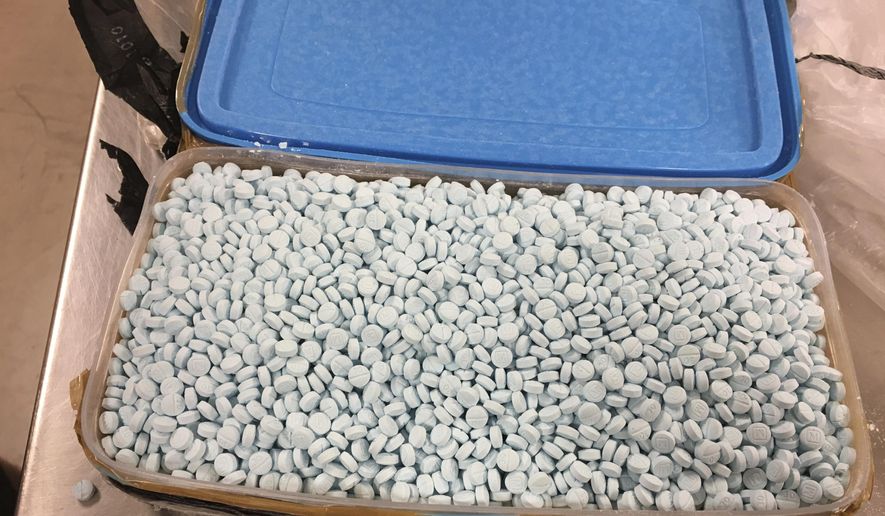House lawmakers filed bipartisan legislation Wednesday to impose new penalties on traffickers who use pill presses to lace fake prescription drugs with fentanyl, meth and other dangerous drugs.
The plan from two Republicans and two Democrats would also require the Drug Enforcement Administration to craft a detailed plan for combating the surge of counterfeit pills that contain synthetic opioids and other drugs, consider new education campaigns to alert parents and potential pill users, and audit the results of existing awareness efforts, such as the “One Pill Can Kill” ad campaign.
Lawmakers, advocates and parents who have lost children to fentanyl overdoses are sounding the alarm over the flood of pills from Mexico that look like Adderall or other prescription drugs but actually contain fentanyl, a potent synthetic opioid.
Unsuspecting users, many of them young people who acquire the pills online, may die from experimenting with the pills. An online DEA tracker says agents have seized 40.5 million pills this year.
“Counterfeit pills laced with fentanyl are ravaging our most vulnerable communities and taking countless lives across the country. I’m proud to lead this bipartisan bill to crack down on the criminals peddling these drugs and help keep our communities safe,” said Rep. Ken Buck, a Colorado Republican who sponsored the Stop Pills that Kill Act with Reps. Lou Correa, California Democrat; David Joyce, Ohio Republican; and Greg Stanton, Arizona Democrat.
Drug enforcement agents say Mexican cartels use chemical precursors from China to manufacture fentanyl and press it into the fake pills that are shipped north of the border. The pills are a major profit driver for the cartels, and most of the pill presses used to make the pills are sourced from China.
Lawmakers said their legislation would implement penalties for possessing paraphernalia used to manufacture fake pills laced with meth, fentanyl and fentanyl analogs.
Fentanyl is the No. 1 killer in a broader U.S. overdose crisis that has killed more than 100,000 Americans per year. Roughly 70,000 of the 107,000 overdose deaths in the U.S. were linked at least in part to fentanyl in 2021, the most recent year for which complete data is available.
The new legislation is part of a series of efforts the U.S. government is taking to crack down on fentanyl. President Biden has called for greater spending on border-screening tools to intercept fentanyl at ports of entry.
Also, the House recently passed a bill that would permanently place fentanyl and its chemical cousins on Schedule I, the most restrictive list of drugs, so traffickers cannot tweak compounds in their supply and duck prosecution.
The bill could face hurdles in the Senate because some Democrats are fearful of ushering in a new era of mandatory minimum criminal penalties, saying it would attempt to incarcerate the nation’s way out of a public health problem.
• Tom Howell Jr. can be reached at thowell@washingtontimes.com.




Please read our comment policy before commenting.